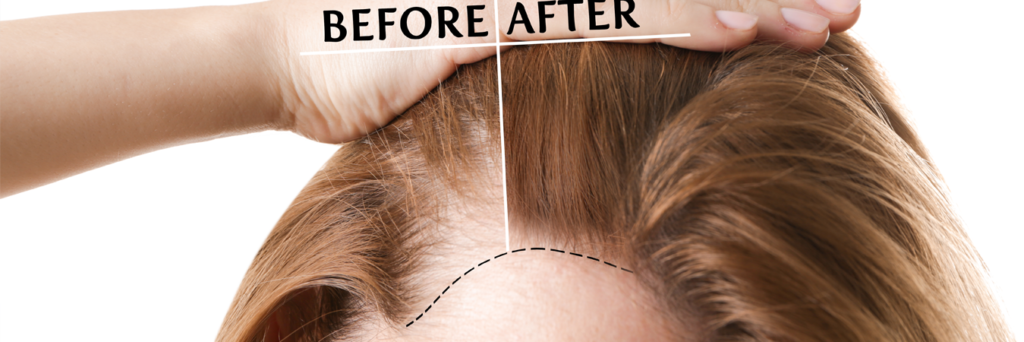PCOS Hair loss – Everything You Need to know

What Is PCOS?
Polycystic Ovarian Syndrome is a hormonal disorder accompanied by quite a few distressing problems. Hair loss is one of them and even though it doesn’t happen to everyone with PCOS, it is a common side-effect.
In this article, we shall shed light on PCOS hair loss and what you can do to stop it.
How does PCOS cause hair loss?
Hair loss caused due to PCOS is also known as female patterned baldness. This condition is similar to androgenetic alopecia, which affects men.In both cases, a hormone named androgen is overproduced. In women, the hormone is present in trace amounts but PCOS accelerates its production. This leads to hair thinning and subsequent hair loss. A few women have also noted dry and limp hair along with acne.
PCOS hair loss will not reduce or limit on its own. It needs medical intervention.
Symptoms of PCOS hair loss
• Hair falling in clumps
• Losing more than the normal number of strands every day
• Finding more and more hair strands on furniture and pillows
• Sudden brittleness of hair
• Lackluster hair
All these are signs that you are suffering from PCOS-related hair loss.
How to stop PCOS hair loss
Certain treatments can help stimulate new hair growth. You can try any of them based on the doctor’s advice.
Oral contraceptive pills (birth control pills)
Birth control pills are known to reduce PCOS hair loss as well as other symptoms by reducing the levels of androgen in the body. The doctor will prescribe these pills along with anti-androgen medication to combat the problem.
Topical treatment
A few women have seen positive results with topical treatment, especially Minoxidil (Rogaine) 5%. It is prescribed specifically for PCOS hair loss and must be used every day for results. Many doctors use this as the first line of treatment before proceeding to other options.
Finasteride and dutasteride
These medications are often prescribed for male patterned baldness. They are both oral treatments that help with hair regrowth. They have been used for female patterned baldness as well and the results have been fairly positive. However, due to unwanted side effects in women, doctors prefer other forms of treatment.
Spironolactone (Anti-androgen medication)
Commonly called Aldactone, Spironolactone is a diuretic. It primarily treats edema but has been successful in correcting PCOS hair losstoo. This medication needs to be taken regularly and for a prolonged period of time for successful results.
Effective Solutions for Hair Loss: Hair Transplants and PCOS Hair Loss Treatment
Hair transplant helps those with thinning hair and PCOS-related hair problems. Healthy hair follicles are implanted from a donor scalp to the patient, enabling new hair growth. Hair transplant surgery requires multiple procedures but is a promising solution.
Is PCOS hair loss reversible?
The hair you lose due to PCOS will not come back. However, with the aforementioned methods, you can definitely stimulate the growth of new hair. So, while PCOS hair loss is not naturally reversible, you can remedy it with medical help.
Conclusion
PCOS is a very stressful disorder that alters many things in the body. Among the many changes that women with PCOS go through, hair loss is a particularly upsetting one. Thankfully, modern medicine is fully-equipped to tackle this issue.
At Reviva Hair Clinic, we have a team of experts and doctors from different departments who come together to solve patients’ hair-related problems. We specialize in PCOS hair loss and have successfully helped many clients regain their confidence with successful hair transplant procedures. For more details, please visit our website.

